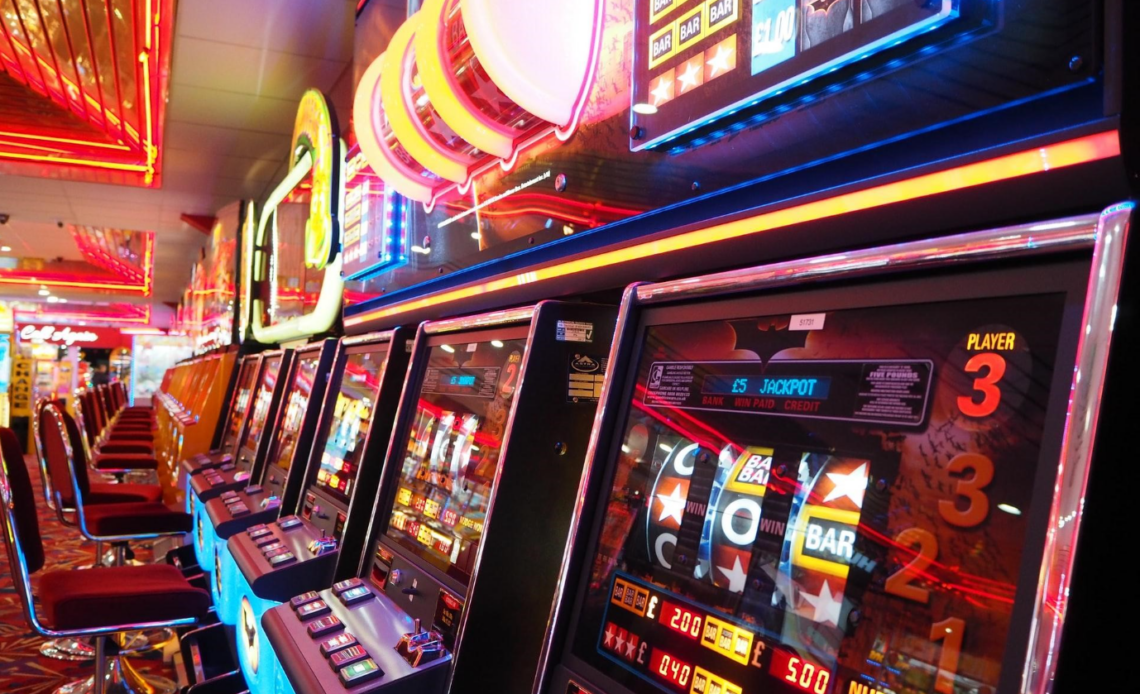Slot games, often synonymous with the glitzy allure of casinos, have undergone a fascinating transformation since their inception. From the mechanical reels of the early 20th century to today’s sophisticated digital versions, slot games have evolved into a diverse and engaging form of entertainment. This article explores the journey of slot gacor terbaru games, their development, and the reasons behind their enduring popularity.
The Birth of Slot Machines
The origins of slot games trace back to the late 19th century. The first slot machine, known as the “Liberty Bell,” was created by Charles Fey in 1895. This mechanical device featured three spinning reels with symbols such as horseshoes, diamonds, and bells. A winning combination, such as three Liberty Bells in a row, awarded the player with a payout. The simplicity of the game, combined with the excitement of the spinning reels, laid the foundation for what would become a global phenomenon.
The Digital Revolution
The late 20th century brought about a significant shift in slot gaming with the advent of digital technology. The introduction of video slots in the 1970s and 1980s revolutionized the industry. Unlike their mechanical predecessors, video slots used computer screens instead of physical reels. This allowed for more complex gameplay, including diverse themes, engaging graphics, and interactive bonus rounds.
The 1990s marked another major milestone with the rise of online casinos. The digital era enabled slot games to transition from physical casinos to virtual platforms. Online slots brought convenience and accessibility to players, allowing them to enjoy their favorite games from the comfort of their homes. The development of random number generators (RNGs) ensured that online slots were as fair and unpredictable as their physical counterparts.
Innovations and Trends
The 21st century has witnessed remarkable innovations in slot games, driven by advances in technology and changing player preferences. Here are some notable trends shaping the modern slot gaming experience:
- Themed Slots: Modern slot games often feature popular themes, including movies, TV shows, and historical events. This thematic approach enhances player engagement by immersing them in familiar and exciting worlds.
- Progressive Jackpots: Progressive jackpot slots offer players the chance to win life-changing sums of money. A portion of each bet contributes to a growing jackpot pool, which can be won by hitting a specific combination. These jackpots can reach into the millions, adding an extra layer of excitement to the game.
- Mobile Gaming: The proliferation of smartphones and tablets has led to a surge in mobile slot gaming. Mobile-optimized slots provide a seamless experience, allowing players to spin the reels on the go.
- Interactive Features: Modern slots often incorporate interactive elements, such as mini-games, free spins, and bonus rounds. These features add depth and variety to the gameplay, keeping players entertained for longer periods.
- Virtual Reality (VR): The emergence of VR technology is beginning to make its mark on slot gaming. VR slots offer an immersive experience, allowing players to feel as though they are in a physical casino environment, with interactive and visually stunning features.
The Psychology of Slot Games
One of the reasons for the enduring appeal of slot games lies in their ability to engage players through a combination of psychology and design. Slot machines are designed to be visually stimulating and rewarding, with colorful graphics, enticing sounds, and frequent, albeit small, payouts. This creates a sense of excitement and anticipation, encouraging players to continue playing.
The concept of “near-misses” is another psychological element at play. When a player comes close to winning but falls short, it can actually increase their desire to keep playing. This is a deliberate design feature aimed at keeping players engaged.
